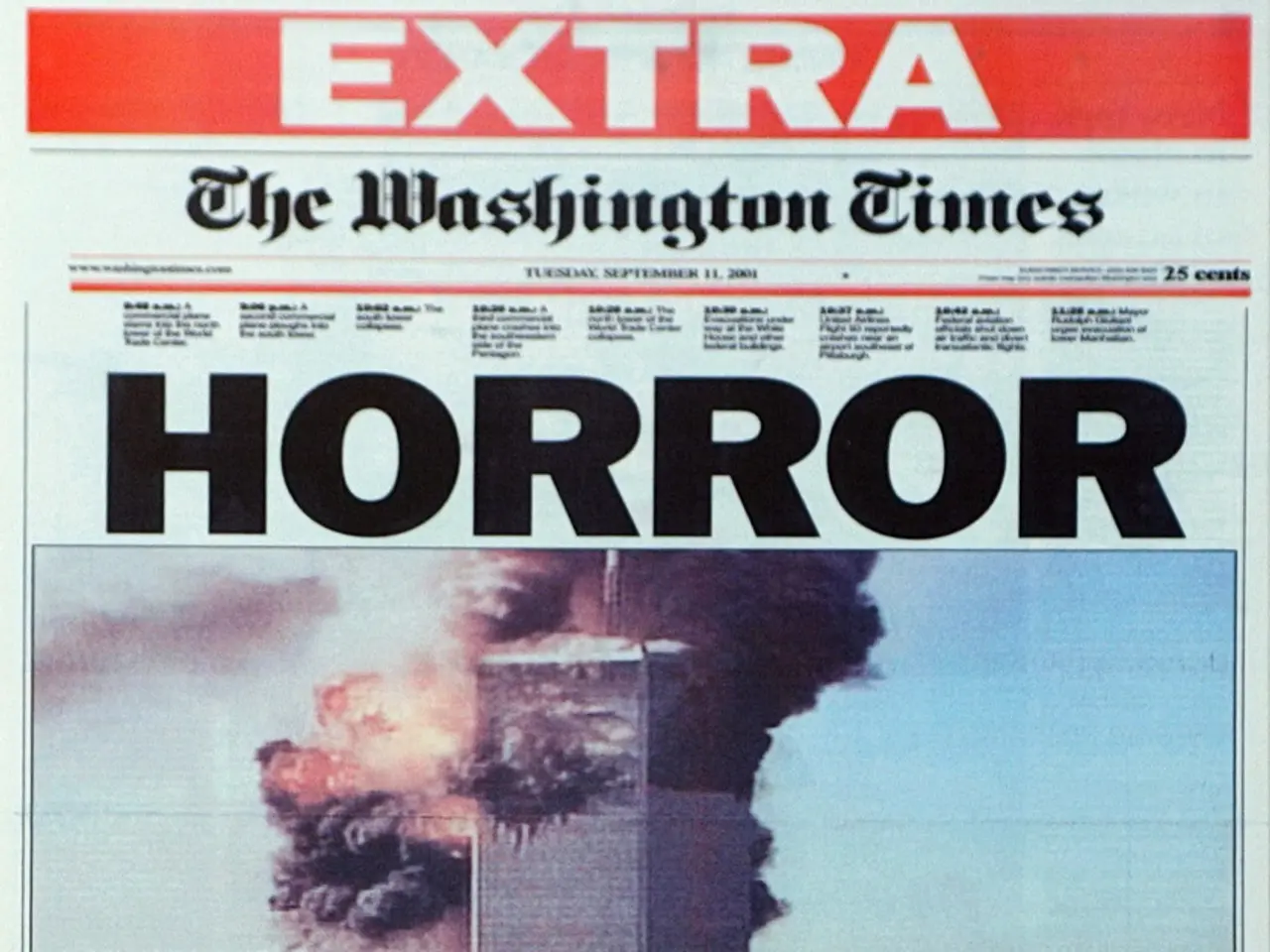Threat to Free Speech in the U.S.: Trump Proposes Suspending Television Broadcasting Permits
In a unique turn of events, ABC News has indefinitely suspended Jimmy Kimmel Live following pressure from station owners Sinclair and Nexstar. The decision comes just hours after Federal Communications Commission (FCC) Chairman, Brendan Carr, sharply criticized Jimmy Kimmel's remarks and hinted at potential action against the network.
The controversy was sparked by Kimmel's Monday monologue, which described the politics of the man charged with killing right-wing activist Charlie Kirk. Conservatives accused Kimmel of misrepresenting the accused gunman, Tyler Robinson.
Unlike past presidents, Donald Trump has openly threatened to use the government's control over broadcast licenses to pressure media companies critical of him. This threat has been a looming presence in the background of the current situation, with many speculating that political pressure from the Trump administration played a role in the timing of the suspension.
However, it's important to note that the FCC does not regulate the actual content that networks like ABC, CBS, and NBC air. Instead, the FCC regulates local television stations in the U.S., enforcing content obligations that include requirements to serve the public interest, such as broadcasting local news, educational programs, and adhering to decency standards. The FCC enforces rules related to indecency, obscenity, and profanity during certain hours to protect viewers, especially children, but does not specifically mandate content omissions.
The rule for a station to lose its license is broad but has always included serving the 'public interest, convenience, and necessity,' which generally means airing content that addresses local issues. A station can lose its license if it fails to meet these obligations.
The FCC issues licenses to local TV and radio stations and also has the authority to approve or block major telecom and media deals. The controversy led to the FCC chairman suggesting there could be additional work for the agency ahead regarding Jimmy Kimmel.
It's worth mentioning that revoking a broadcast license almost never happens. In this case, Disney's chief executive Robert A. Iger and its television chief Dana Walden made the final decision to suspend the show.
The suspension of Jimmy Kimmel Live has also drawn criticism from former US President Barack Obama, who spoke out against Trump's threats to freedom of speech. David Letterman, too, criticized ABC for suspending Kimmel's show under pressure from Trump.
As the situation unfolds, it serves as a reminder of the delicate balance between free speech, public interest, and the role of the media in a democratic society.
Read also:
- United States tariffs pose a threat to India, necessitating the recruitment of adept negotiators or strategists, similar to those who had influenced Trump's decisions.
- Weekly happenings in the German Federal Parliament (Bundestag)
- Southwest region's most popular posts, accompanied by an inquiry:
- Discussion between Putin and Trump in Alaska could potentially overshadow Ukraine's concerns








